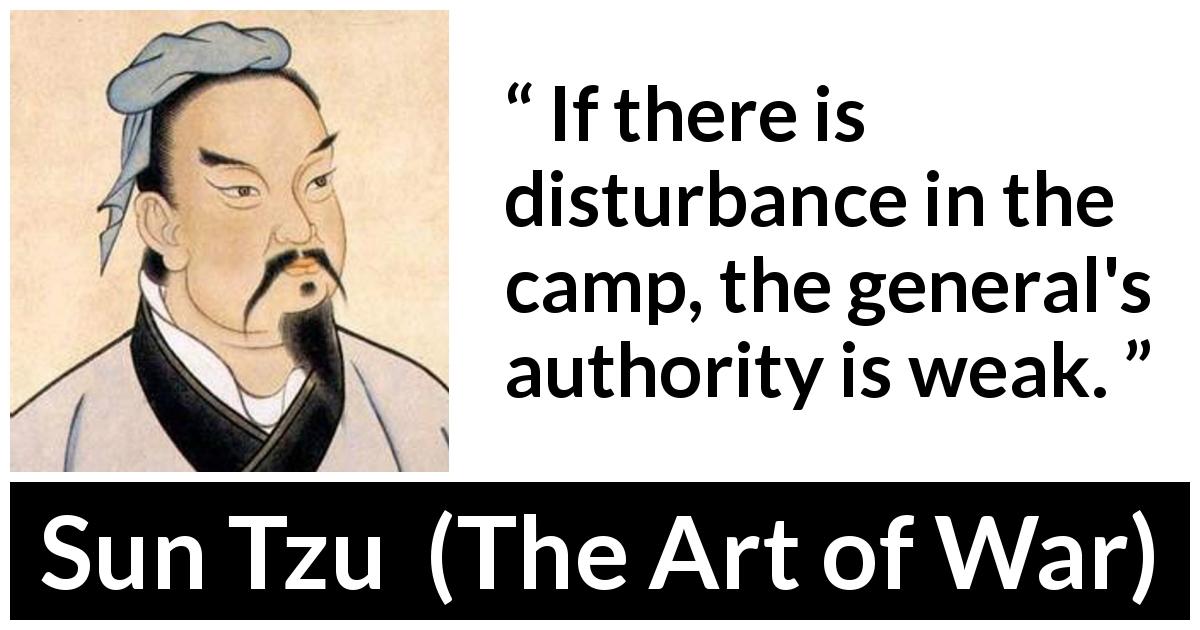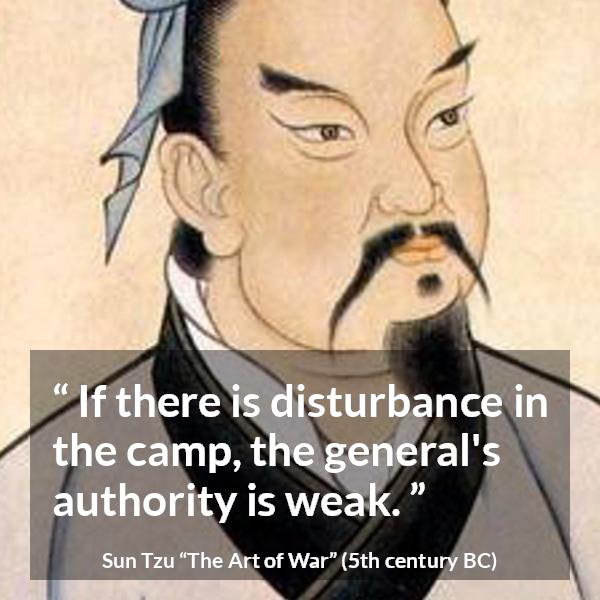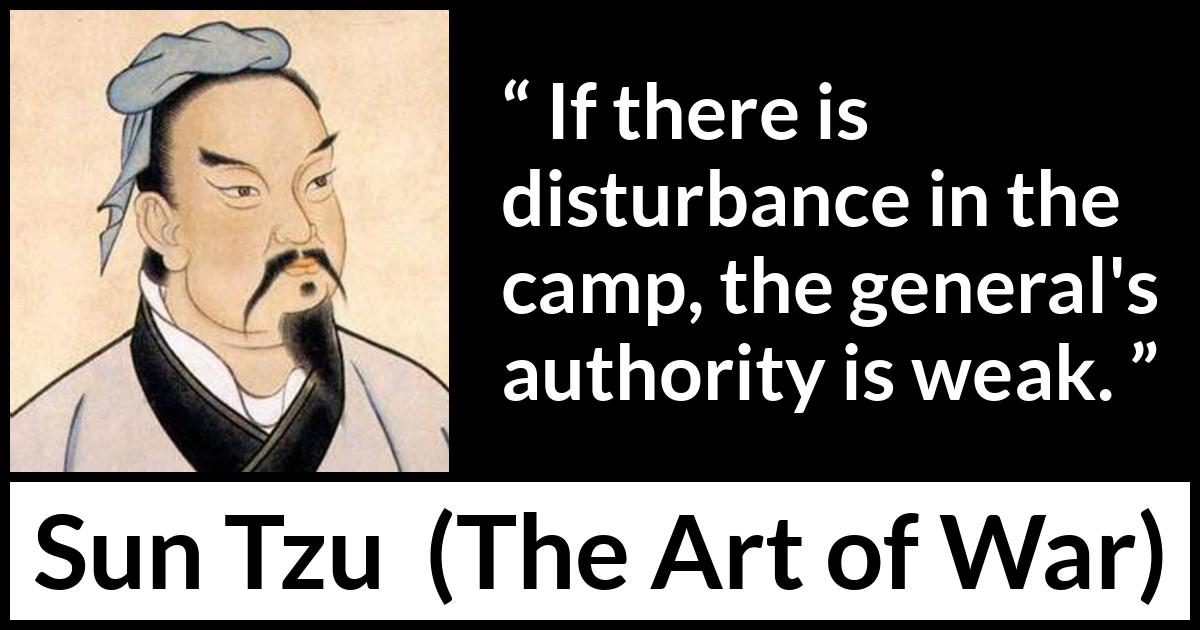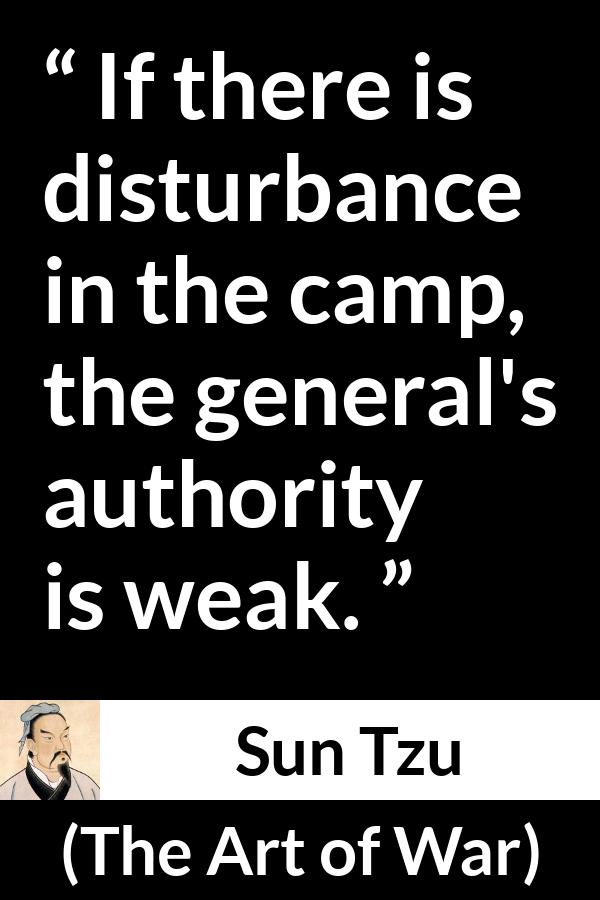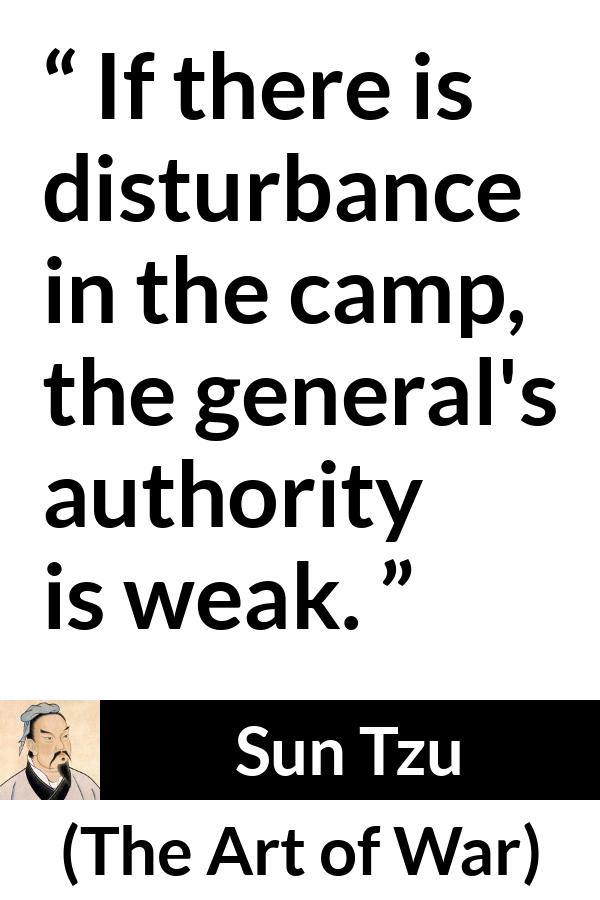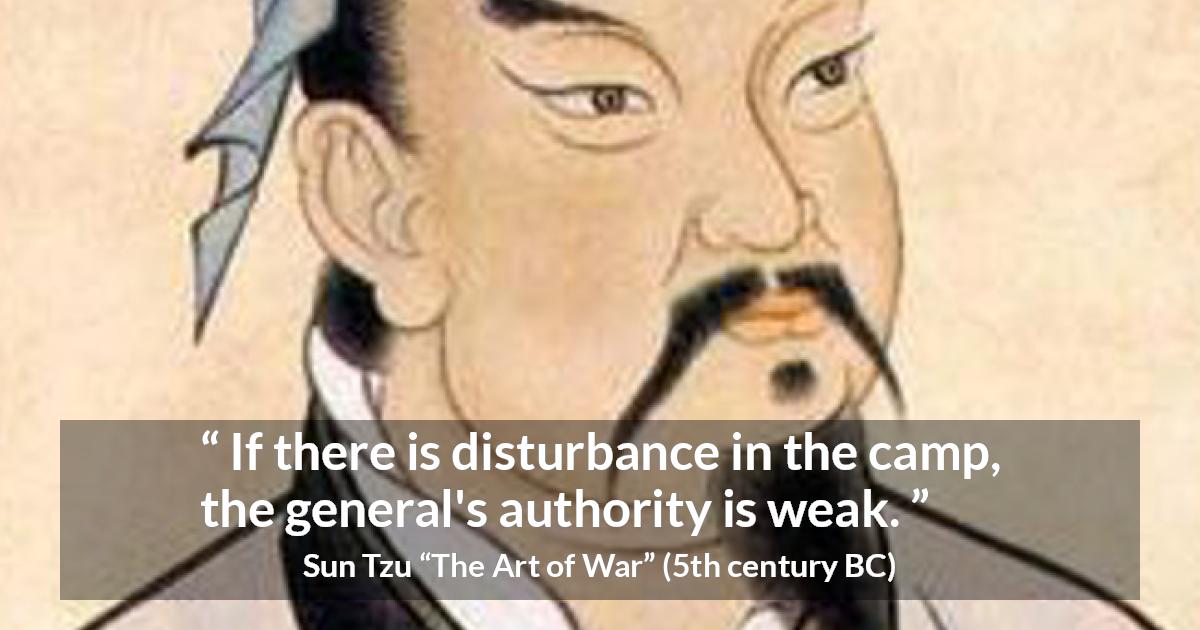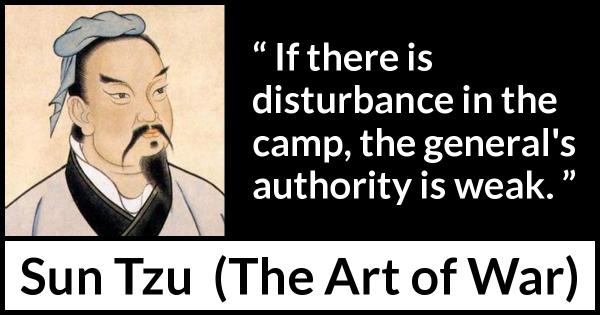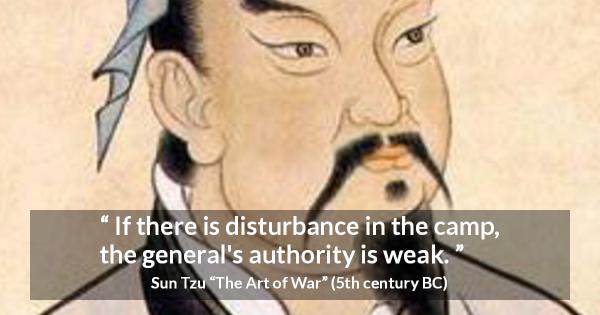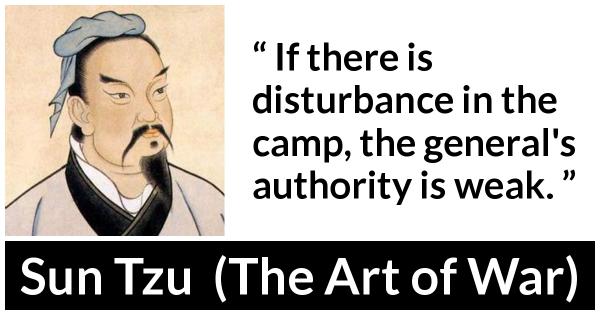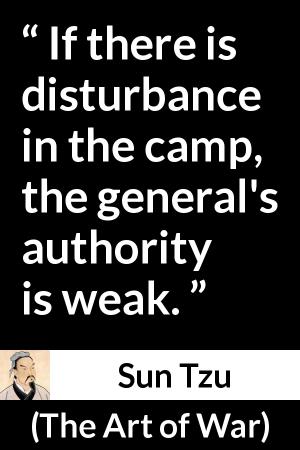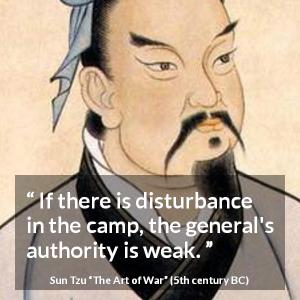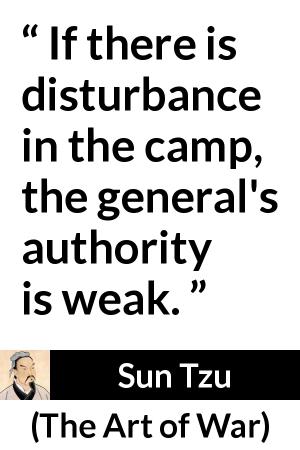“ If there is disturbance in the camp, the general's authority is weak. ”
Sun Tzu, The Art of War (5th century BC). copy citation
| Author | Sun Tzu |
|---|---|
| Source | The Art of War |
| Topic | weakness authority disturbance |
| Date | 5th century BC |
| Language | English |
| Reference | |
| Note | Translated by Lionel Giles |
| Weblink | http://www.gutenberg.org/files/17405/17405-h/17405-h.htm |
Context
“If the enemy sees an advantage to be gained and makes no effort to secure it, the soldiers are exhausted.
32. If birds gather on any spot, it is unoccupied. Clamor by night betokens nervousness.
33. If there is disturbance in the camp, the general's authority is weak. If the banners and flags are shifted about, sedition is afoot. If the officers are angry, it means that the men are weary.
34. When an army feeds its horses with grain and kills its cattle for food, and when the men do not hang their cooking-pots over the camp-fires, showing that they will not return to their tents, you may know that they are determined to fight to the death.” source
32. If birds gather on any spot, it is unoccupied. Clamor by night betokens nervousness.
33. If there is disturbance in the camp, the general's authority is weak. If the banners and flags are shifted about, sedition is afoot. If the officers are angry, it means that the men are weary.
34. When an army feeds its horses with grain and kills its cattle for food, and when the men do not hang their cooking-pots over the camp-fires, showing that they will not return to their tents, you may know that they are determined to fight to the death.” source
